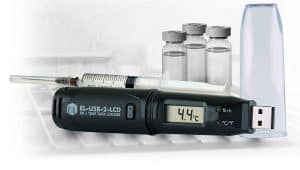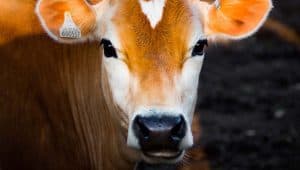Using Digital Data Loggers To Monitor Livestock Vaccine Storage
As part of their on-going veterinary research program, The University of Bristol carried out a study into the storage of livestock vaccines, exploring the associated risk to potency when stored on farms before use.
Livestock vaccines are crucial tools for animal and public health. They are a cost-effective method to prevent animal disease, enhance the efficiency of food production, and reduce or prevent transmission of zoonotic and foodborne infections to people. Proper usage and storage of livestock vaccines are essential to achieve maximal vaccine safety and efficacy.
Williams and Paixão, 2018.

Initial research carried out by The University of Bristol found plenty of guidance into the storage of vaccines intended for humans, but no clarity on storing vaccines for animals. Despite this, the majority of livestock vaccines have a recommended storage temperature of 2 to 8°C.
Therefore, the purpose of the study was to explore current refrigeration processes for livestock vaccines, looking into the performance of on-farm refrigerators and their ability to maintain the correct storage temperature. This would allow the research team to evaluate the associated risks to vaccines when stored in fridges on the farm before animal application.
The Study

From January to August 2014, the study monitored the internal and external temperatures of 17 refrigerators across several different farms. To do this, two EasyLog EL-USB-2-LCD digital data loggers were placed inside each fridge to monitor the top and bottom shelves, and a third data logger was placed outside, but in the same room as the fridge.
The data loggers were configured to take temperature readings every 30 minutes, as recommended by the manufacturer, Lascar Electronics. At the end of the trial, the results were compiled and the recorded temperatures were reviewed.
The Results
The recorded data from the loggers provided an enormous amount of raw information on the conditions inside the fridges. Ultimately, the results identified that all of the fridges used across this study failed to sustain the correct temperatures needed to protect vaccine potency and therefore did not provide adequate conditions for vaccine storage.

The results suggested that on-farm vaccine storage is often neglected by farmers, and therefore suggested that vaccine storage on farms should be minimized. Alternatively, when vaccines must be kept on farms, then temperature monitoring of the refrigerator is highly recommended.
Digital data loggers can be programmed to send automatic alerts via SMS or email to forewarn a potential temperature deviation, helping to minimize the risk of vaccines losing their potency and to ensure livestock vaccines remain efficient.
Williams, P.D., Paixão, G. On-farm storage of livestock vaccines may be a risk to vaccine efficacy: a study of the performance of on-farm refrigerators to maintain the correct storage temperature. BMC Vet Res 14, 136 (2018). https://doi.org/10.1186/s12917-018-1450-z


